SMALL SCREEN
This weekend… we’re not watching: The popular rom-com that couldn’t be saved
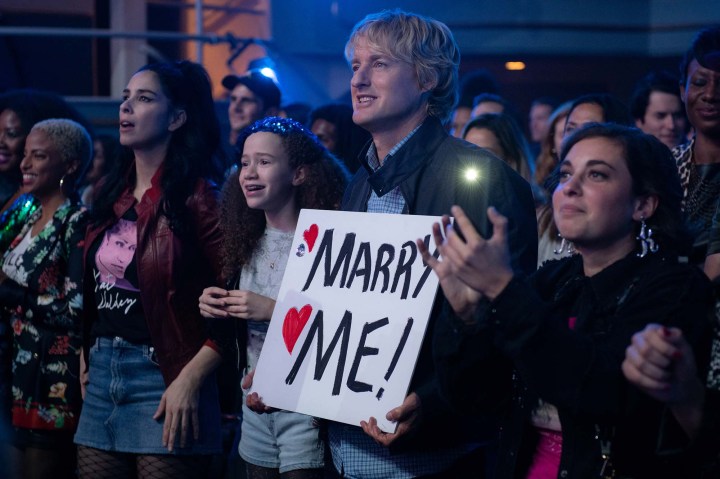
‘Marry Me’ is a carefree rom-com of big musical spectacle and fanciful cliché, and a perfect case study of why romantic comedies have declined but still survive.
Romantic comedies have enormous potential to strike a nerve: love is a universal human experience with many edges, so harnessed intelligently, a writer can draw practically any flavour out of it.
The best rom-coms have audiences on the edge of their seats, slapping their thighs, choking back tears and then letting them loose with sympathetic bliss all in a matter of minutes.
But those few classics like Annie Hall and When Harry Met Sally often go on to become clichés, beaten to a slow death by an incessant barrage of modern imitations.
Watching a formulaic rom-com is like drinking syrup. It’s a deluge of sweetness unlike anything you would normally consume, and you don’t even have to chew. For those viewers who don’t want to think too much and feel like a pick-me-up, it tastes great; but there’s a downside to suddenly chugging that much sugar, spice and everything nice: it can make a lot of people just feel sick.
The proportion of big-screen romantic comedies being produced had been steadily declining since the 2000s. One popularly speculated reason for the decline points to women’s rights, better representation, equality and global technological progress.
An essential feature of romantic comedy is an obstacle that a couple must overcome. Many of the common obstacles faced by lovers in the past (like social stratification, religious repression and geographical separation) have waned with cultural progressiveness and technological advancement; and a lot of the obstacles that do still disrupt relationships today (like illness, injury or contradictory politics) are too serious for most romantic comedies to tackle.
In order to provide the conflict required for satisfying character development, modern romantic comedies often resort to either frustratingly unrealistic miscommunication or outrageously unlikely premises; which brings us to the new blockbuster romantic comedy Marry Me being released this Valentine’s weekend.
Marry Me is based on a graphic novel of the same name, which had a target market of readers between the age of 12 and 18.

Bobby Crosby comic. Image: Supplied
It stars Jennifer Lopez as Kat, a pop star whose impending concert and public marriage to Bastian, also a famous pop idol (played by Colombian singer Maluma), are the talk of the town.
Owen Wilson plays Charlie, a geeky maths teacher eager to show his pre-adolescent daughter that he can be cool, so he agrees to go to the big wedding concert with his wise-cracking gay best friend.
Charlie is indistinguishable from almost any of Wilson’s other roles so let’s skip the pretences and just call him Owen Wilson. When Kat discovers on stage that her husband-to-be is cheating on her, she breaks down and spontaneously picks Owen Wilson out of the crowd (who is unwittingly holding his friend’s “Marry Me” sign) to marry instead.
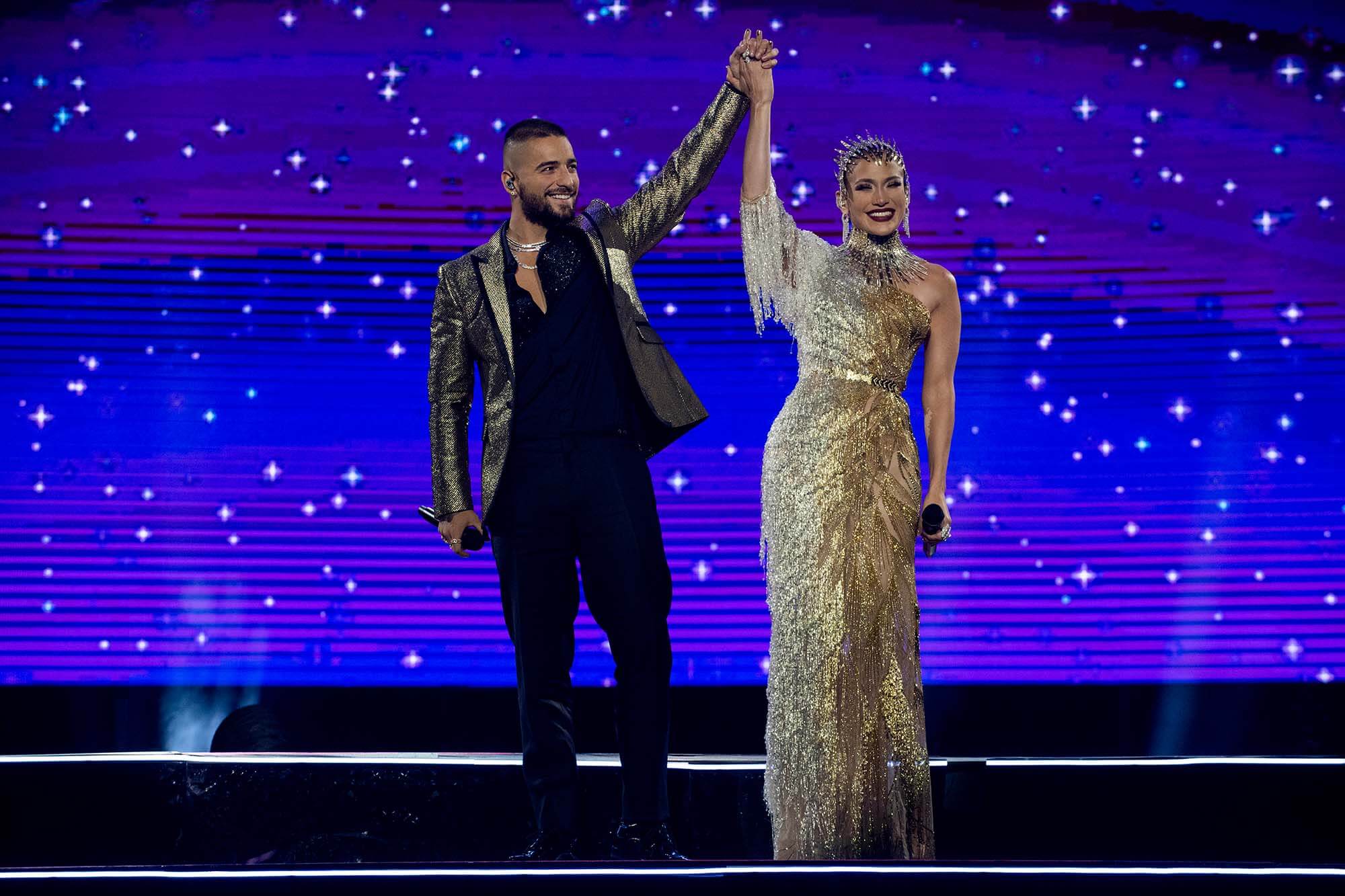
Maluma as Bastian and Jennifer Lopez as Kat Valdez in Marry Me. Image: courtesy of Universal Pictures

Maluma as Bastian and Jennifer Lopez as Kat Valdez in Marry Me. Image: courtesy of Universal Pictures.
Even if we indulge in the insanity of marrying some random guy in the crowd as the superstar equivalent of a drunken union in Las Vegas – a freak occurrence of spontaneity, loss of clarity or celebrity showmanship – that still doesn’t explain Kat’s determination to stay with this total stranger afterwards.
There’s your outrageously unlikely premise.
To quote Sarah Silverman’s character in the film, “this is the most unbelievable thing that could ever happen in life”.
At this point, about 15 minutes in, what’s kept the sceptics from walking out thus far are hints at potentially engaging nuggets of social commentary.
We start thinking about the pressuring public nature of celebrities’ lives and the ridicule they are subjected to in the media if they dip one toe out of line. We see a clip of Jimmy Fallon ripping into Kat, joking that she “left the guy from the concert, then also married her Uber driver”.
We start thinking about the toxicity of celebrity worship: when Kat discovers her fiancé’s scandal during the marriage concert, she is literally perched over the crowd upon a giant pedestal, revered like a deity. Heartbroken, she breaks the façade of perfection, going off script, speaking candidly to the audience and humanising herself, and yet all these supposedly adoring fans seem to care about is ruthless positivity, so when she declares that she’s leaving Bastian for a stranger in the crowd, it seems that people just spin on a dime and abandon Bastian in favour of this new hit of excitement.
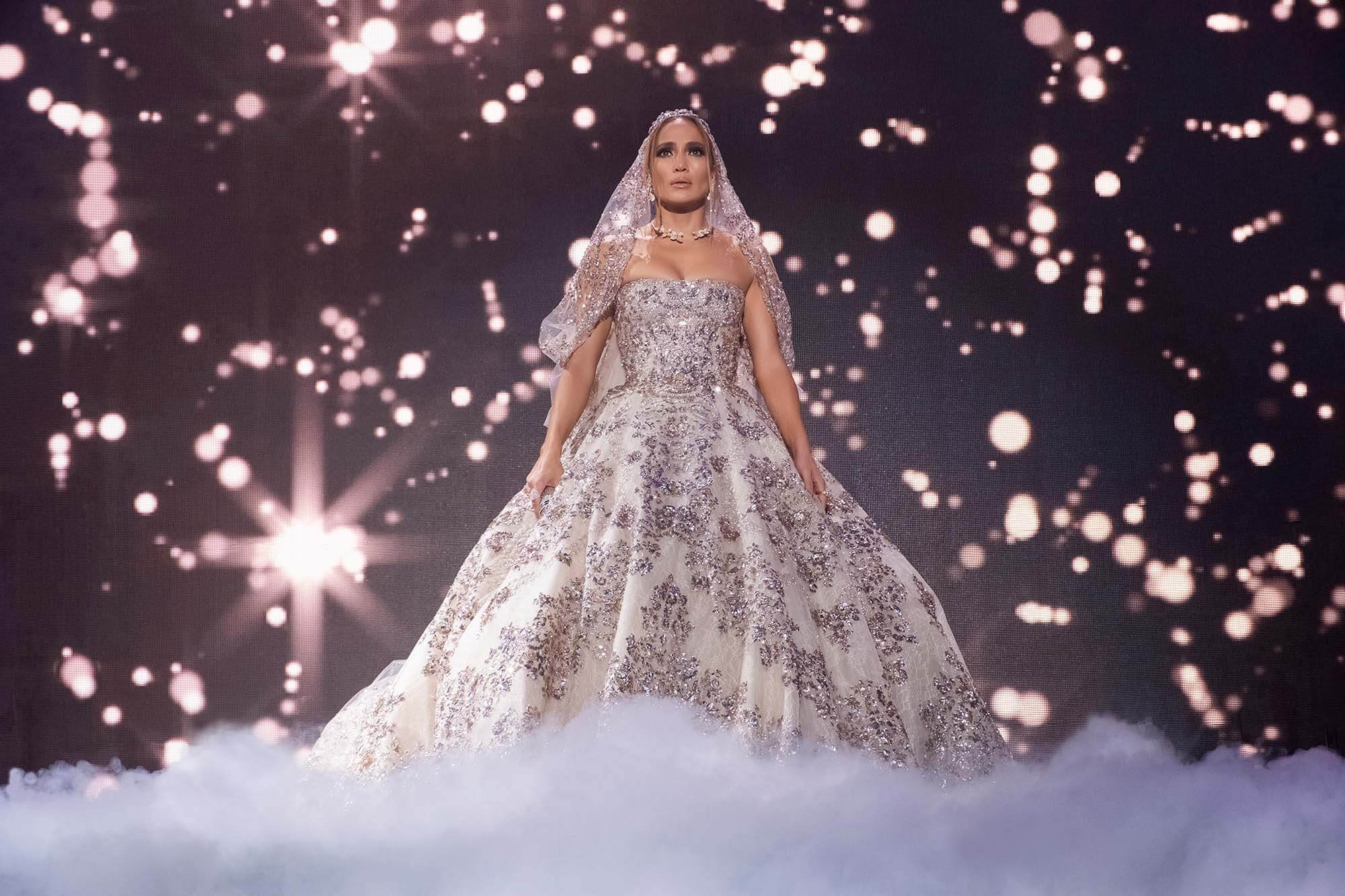
Jennifer Lopez as Kat Valdez in Marry Me. Image: courtesy of Universal Pictures
Kat’s agent, the only sincere character in the film, (played by John Bradley of Game of Thrones) makes several little feminist jabs at the music industry, describing Kat as “a self-made woman north of 35 in an industry that maligns and humiliates women at any age”. He criticises Owen Wilson for being unfairly judgemental, saying, “you see her as this narcissist who takes meaningless selfies…”, to which Owen Wilson, representing the cynic, responds, “when is a selfie ever meaningful?”
Kat is marketed as an optimist and a new-age woman with untraditional notions of marriage. She sings uplifting (some could say generic) songs championing self-fulfilment with lyrics like “I am the love of my life”.
Her choice to marry some random guy is convolutedly presented as a big stuff-you to the patriarchy. She asserts that it’s unfair that women have to wait for men to propose, so she is taking matters into her own hands – a straw-man justification which doesn’t even apply in her case, seeing as Owen Wilson was the one who held up the Marry Me sign.
All of these ideas are a lot to work with, surely enough to break the mould of the flower- and heart-shaped rom-com cookie-cutter. Alas, every one of these interesting shapes melts into a sugary, air-filled blob of dough in no time at all.
After building up our expectations of a somewhat novel rom-com touching on non-conventional concepts, the far-fetched set-up is used merely to engineer amusing, unlikely situations such as a superstar chaperoning a school dance.
Rather than investigate how the paparazzi harass their prey, the spotlight is romanticised. The moments when Kat is intended to be shown as down to earth are the ones in which she appears most egotistical, like when she attempts to nobly rise to the gambit of living without the constant help and doting of others, and lands up scrambling around public spaces offering strangers exorbitant amounts of money to do things for her. Shockingly, it seems like that was supposed to be her redeeming moment.
Instead of portraying the common challenge faced by public figures to make time for their relationships, Kat chops and changes her life for Owen Wilson without a second thought. Nothing is difficult. Everything is as it should be. It looks uninspired, it looks unrealistic, but it could also be why it will be so popular.
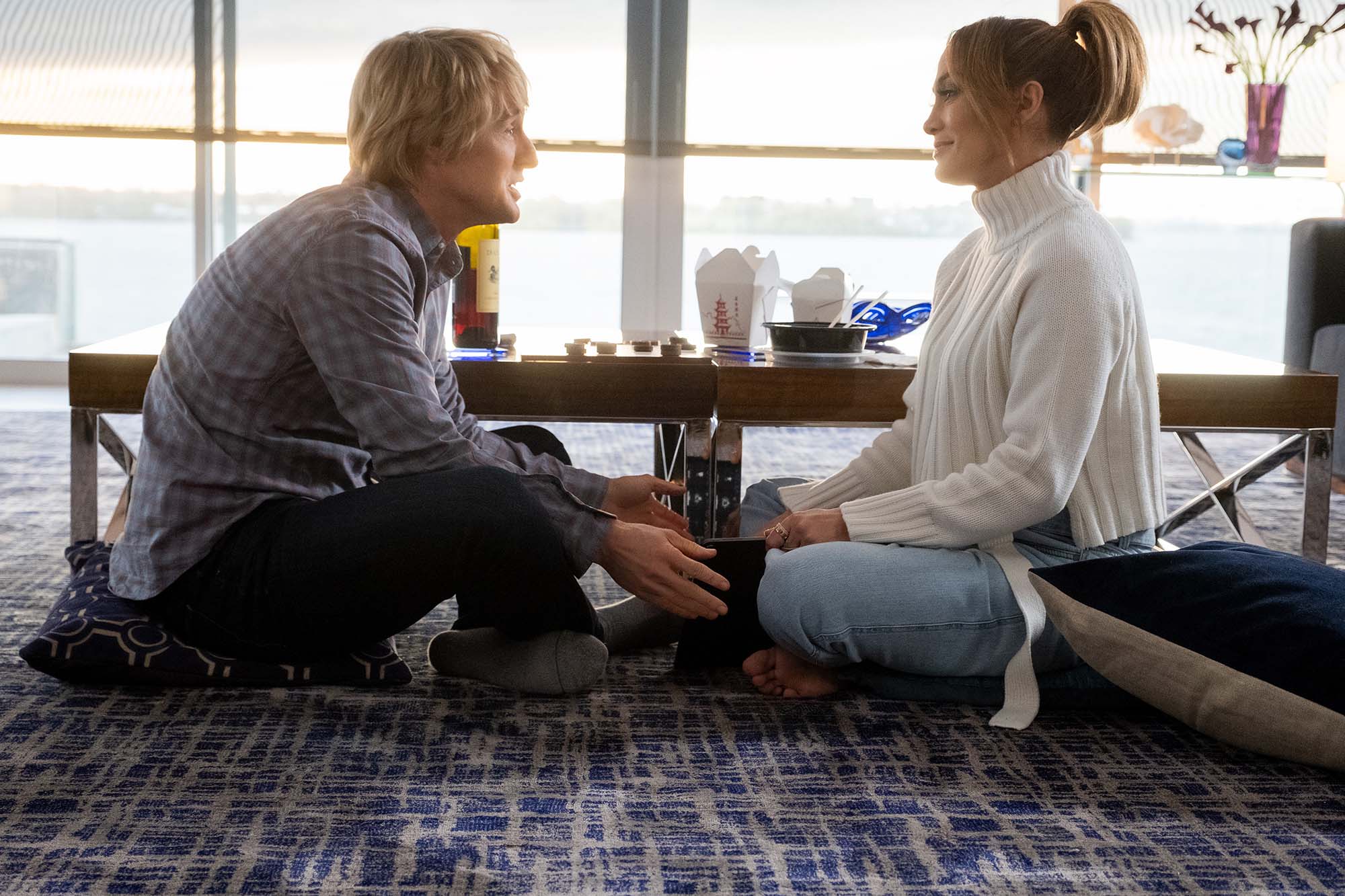
Jennifer Lopez as Kat Valdez and Owen Wilson as Charlie Gilbert in Marry Me. Image: courtesy of Universal Pictures
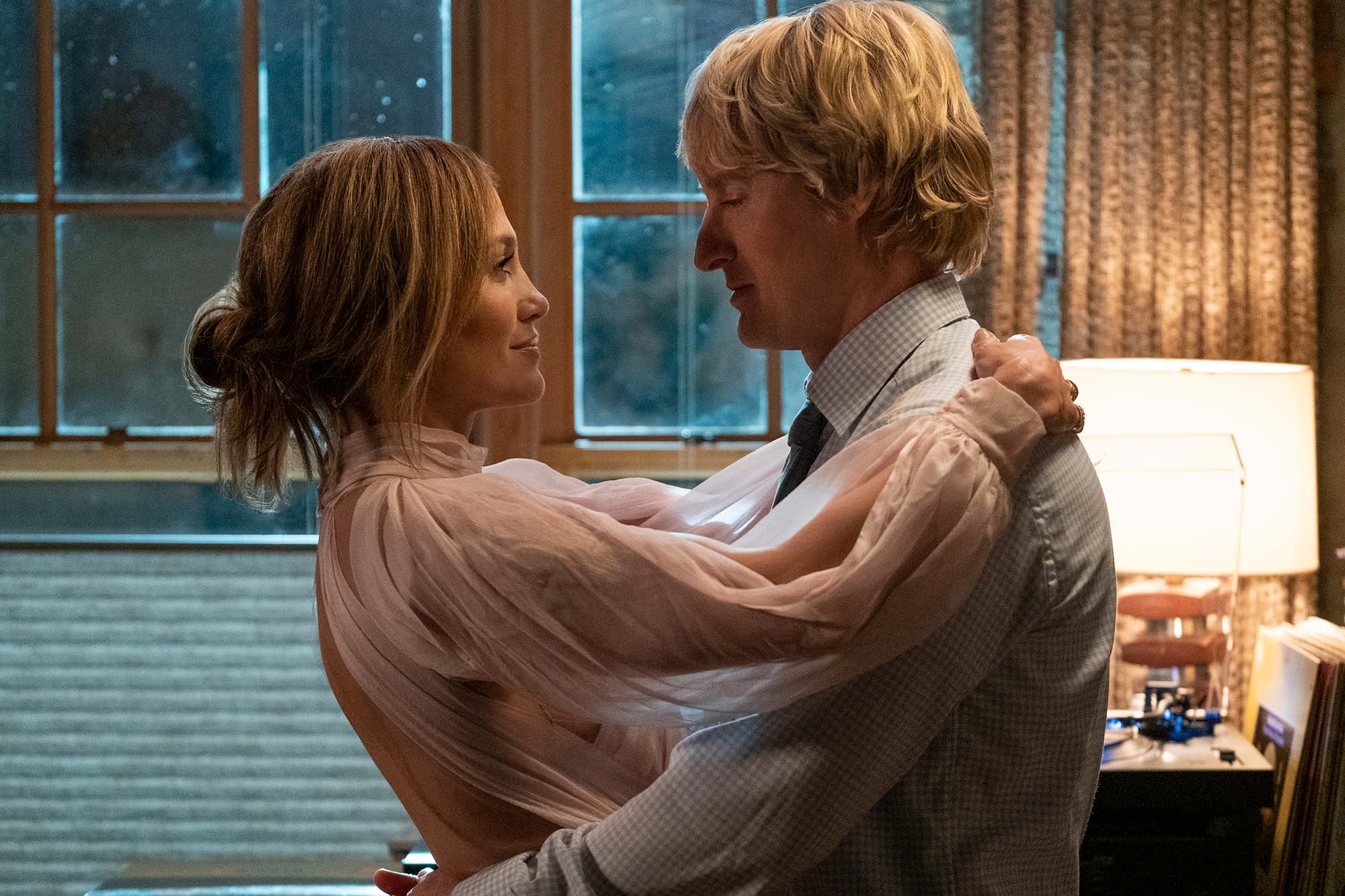
Jennifer Lopez as Kat Valdez and Owen Wilson as Charlie Gilbert in Marry Me. Image: courtesy of Universal Pictures
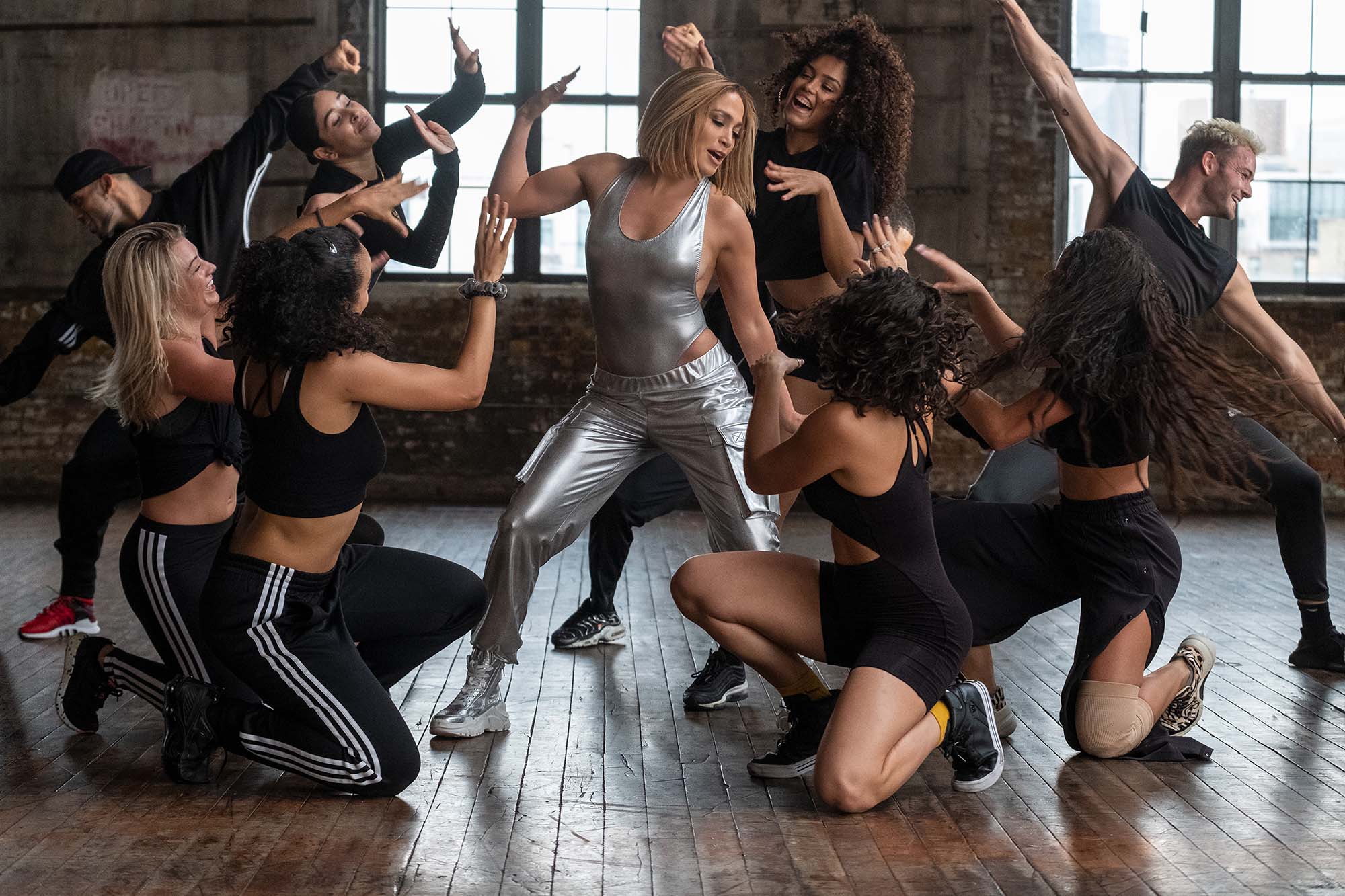
Jennifer Lopez as Kat Valdez in Marry Me. Image: courtesy of Universal Pictures.
The clichéd scenes of Kat dancing with a maths club of students are excruciatingly obvious and formulaic, and yet they’ll still get a smile out of you, like a groan-inducing joke from a Christmas cracker that makes you laugh even though it’s really bad. The score holds your hand the entire way – don’t know how to feel? Don’t worry – the music will tell you exactly when to laugh or cry, you can just kick back.
Fans of Jennifer Lopez will enjoy the film purely based on the spectacle of her glamorous performances. J.Lo has been painstakingly pushing the media campaign around the film and released nine new songs for a soundtrack album, intentionally conflating Kat with her real-world persona.
Her song On My Way has seven million views on YouTube before Marry Me has even premiered. It took three established songwriters to compose this plonky piano riff which sounds like a blitheringly simple nursery rhyme – a musical devil-thorn, the entire purpose of which is to ensnare you so that you spread it against your will.
But “to each their own” – there is no good or bad art. Some people have a sweet tooth, and some do not. Some people like pop music and rom-coms, others don’t, and that’s just fine, but if you’re going to serve up a cup of syrup, don’t try to pretend that it’s single malt whiskey. DM/ML
Marry Me is available in South Africa in cinemas from February 11.
You can contact This Weekend We’re Watching via [email protected]


















 Become an Insider
Become an Insider
Comments - Please login in order to comment.